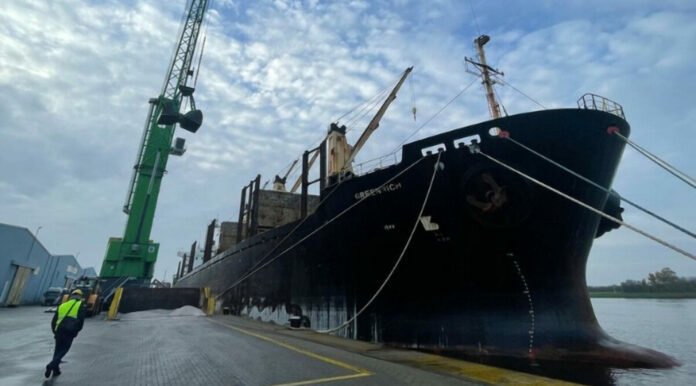564,000 kilograms of fertilizer that was donated by Russia never arrived in Kenya. The fertilizer left Russia but somewhere along its journey, it disappeared in the high seas.
The missing donated fertilizer was part of a consignment of 34.4 million kilograms of raw fertilizer material that Russia had donated to Kenya. The missing fertilizer has been announced by the Auditor General Nancy Gathungu.
“The National Cereals and Produce Board (NCPB) received 33,835.9 metric tonnes (33.8 million kilograms) hence a short landing of 564.1 metric tonnes from the 34,400 metric tonnes of fertilizer raw materials donated from Russia. The cause of the short landing was not explained,” the Auditor General stated in her audit report.
The Ministry of Agriculture had in June last year held a brief ceremony at Grain Bulk handlers in Mombasa where Cabinet Secretary Mithika Linturi received part of the fertilizer amounting to 34,400 tonnes. He was in the company of Russian Ambassador to Kenya Dmitry Maksimychev.
“More than 34,000 tonnes of fertilizer donated to Kenya by the Russian Uralchem-Uralkali Group are now being reformulated to produce 100,200 tonnes of fertilizer. This will help Kenya a lot to get a good harvest this year,” the Russian Embassy in Kenya said on the donated fertilizer.
The donated fertilizer was to be reformulated to produce 100,200 tonnes and distributed to farmers under the Fertiliser Subsidy Programme through outlets owned by the Kenya National Trading Corporation and the NCPB.
NHC stuck with hundreds of unsold “affordable” houses worth Sh. 1.2 billion
The fertilizer was donated by the Uralchem-Uralkali Group of Russia and shipped in with the help of the World Food Programme on board Mv BBG Baise.
The fertilizer programme was water caught up in a huge scandal after farmers complained that the fertilizer they were being sold at NCPB was fake. Exposes that were carried out by the media showed that some of this fertilizer was animal dung, soil, and even sand.
These complaints were later confirmed by the Kenya Bureau of Standards (KEBS). The authority tabled documents before the National Assembly Agriculture Committee showing how substandard fertilizer dubbed was supplied to the NCPB and sold to farmers for over a year undetected.








